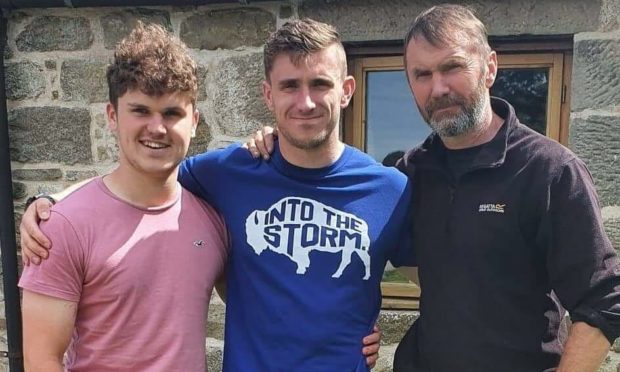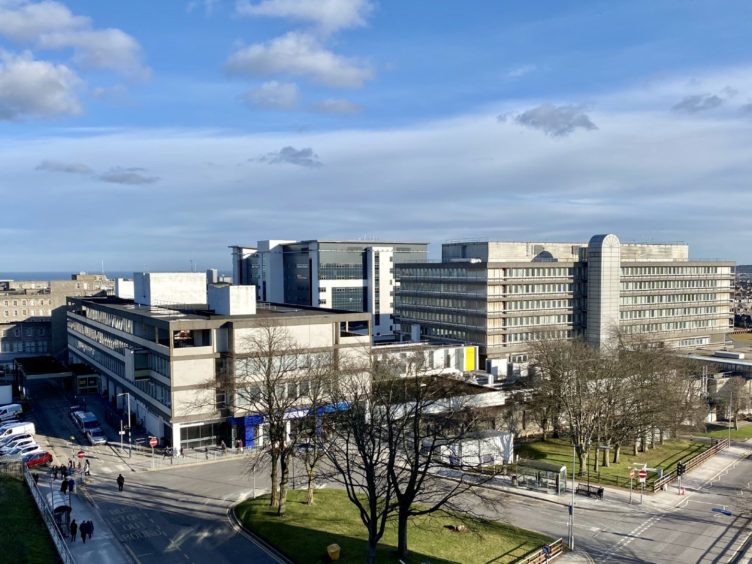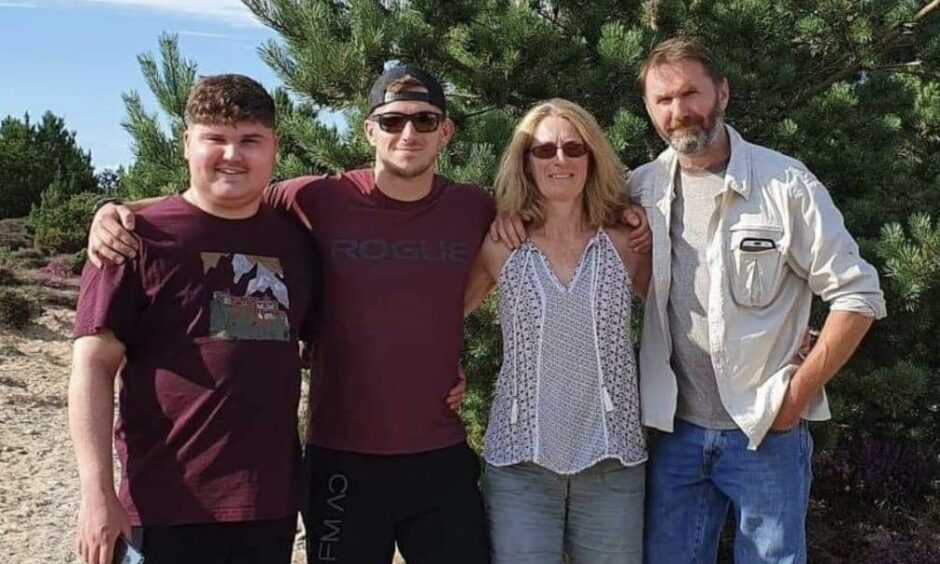A north-east teenager has pushed his body to the limit for a gruelling physical challenge – despite being diagnosed with a brain tumour.
Rob Bichan, from Findhorn, received the devastating news he had the inoperable condition on his brainstem in January 2020.
The 17-year-old was initially given an “extremely poor” prognosis and had to learn to walk again after an operation.
However, the former Forres Academy student has since battled back through lockdown and regained his fitness with the help of his girlfriend Jodie Park.
The duo even competed in the challenging Battle Cancer Crossfit event in Manchester last month with Rob’s mum Jenny and his brother Johnny to help find a cure for the condition.
‘When I woke up, I had lost feeling on my left side’
Rob first started feeling unwell in October 2019 when he started getting headaches while lifting weights in the gym.
Concerned, he went to see his GP, who suggested he got his eyes tested.
No closer to finding the cause of the headaches, he was then sent to Aberdeen Royal Infirmary for a MRI scan in January 2020.
He said: “The results from the scan were bad. I was told I had an aggressive grade-four brain tumour called diffuse intrinsic pontine glioma (DIPG), carrying with it an extremely poor prognosis.
“The tumour was on my brainstem and was therefore inoperable”.
Further scans suggested that the tumour may in fact be “low grade”.
And the following month he had an operation in Edinburgh where a neurosurgeon removed a sample of the cells for analysis, which confirmed it was “low grade”.
Rob said: “When I work up from the operation, I had lost feeling in my left side, which was really scary.
“I had to learn to walk again as a result.
“I was also suffering from double-vision, which was really weird but thankfully that has improved over time.”
Treatment during lockdown
Rob was prescribed six weeks of radiotherapy in Aberdeen to fight the tumour, which required him to undergo treatment five times a week.
After the first week, he was offered bed and breakfast in accommodation run by cancer charity Clan.
However, just days later, it had to close due to the onset of the coronavirus pandemic.
Rob said: “Thankfully, my radiotherapy wasn’t affected by the pandemic and I was able to complete the course.
“After my treatment finished, I suffered from headaches, caused by swelling in my brain, which meant they had to increase my dosage of steroids.
“Then, I started getting really bad effects from the steroids.
“The most difficult thing to deal with was the weight gain. I put on 25kg and went from being in the best shape of my life to being unfit and overweight.”
Support from ‘childhood sweetheart’
As Rob continued to recover during lockdown, his girlfriend Jodie moved in with him.
The couple faced being separated due to the “stay at home” message.
However, Jodie sacrificed time with her own family before the two of them began to start training in Rob’s home gym to help him regain his fitness.
Rob said: “I wasn’t told to shield, but I felt vulnerable, having had surgery and cancer treatment.
“Jodie and I are childhood sweethearts, having met in first year at school.
“It was so kind of her to sacrifice seeing her own family to come and live with me, she was a fantastic support and really helped me through some dark times.
“It gave the two of us something positive to focus on.
“By September, I was able to come off the steroids, which brought its own challenges, as I felt really sick and I was really stressed.
“Gradually, however, I managed to get back to normal and I’ve lost 20kg in weight.”
Battle to find cure
Earlier this month Rob led the team-of-four to the Battle Cancer Crossfit challenge in Manchester.
The event put competitors’ fitness to the test in a series of gruelling challenges with workouts involving weights and testing endurance.
The squad raised £4,800 for charity Brain Tumour Research in the process.
It came shortly after Rob finished school as he begins to start work for his father’s groundworks engineering business.
He said: “My focus also remains on my fitness and on staying as strong and healthy as possible.
“If I can continue to raise money for research into brain tumours in the process, I will feel proud to have done my bit.
“I’m hoping that I and other brain tumour patients can benefit from a much-needed breakthrough in this area of cancer research before it’s too late.”
Brain tumours: The facts
Brain tumours kill more children under the age of 40 than any other form of cancer.
Every year, about 16,000 people are diagnosed in the UK.
The condition is indiscriminate and can affected anyone at any age.
Joe Woollcott, community development manager for Brain Tumour Research, said: “We were so sorry to learn about Rob’s DIPG diagnosis.
“To take on such a tough physical challenge after all he’s been through and at such a young age, is truly inspiring and will no doubt motivate people to consider donating or maybe even taking on a challenge themselves.”



